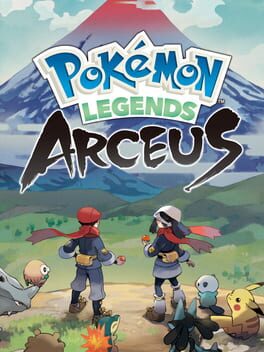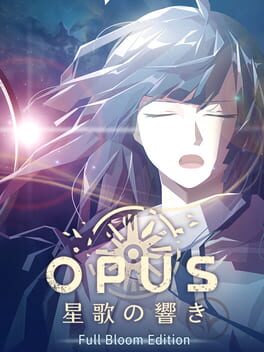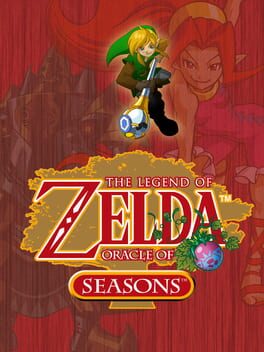Talketsu
BACKER
Endwalker is something that I approached with a lot of hesitation, doubting that it had much left of its story to tell, much left of its characters to explore, much left of its world to expand. And in a way, I was right, but Endwalker’s aim isn’t to just be another stepping stone for the overarching narrative. It is as most would say a “culmination”, and it is in this idea where I feel Endwalker once again repurposes that same cognition that made Shadowbringers feel so special.
In this instance acknowledging the titular “End” which this expansion represents, both philosophically and literally. While the former is the one many find the most interest in, and deservedly so, it’s the latter which really came off to me as profound. There’s something special about XIV’s meta storytelling, Ishikawa helmed expansions in particular, that really moves me. It’s not as if these expansions intend to muse upon the nature of the relationship between game and player, or the twisted morality of typical game mechanics, rather it’s an acknowledgement of us, the players, the heroes. A self-aware recognition of the long and arduous journey we have walked, and an assurance that our journey is not over yet.
Following this notion we find in Endwalker’s deep embrace, is a trend of solemn reflection amongst its character. Ruminations on their pasts, beliefs, adventures, echoing the voice of its creators, a voice which extends the same question to us. Has our journey been good? Has it been worthwhile? Amongst the aggregate, a single answer is nigh impossible, each and every soul will provide their own story.
Yet it is this anthology that XIV champions. Each story portraying the never-ending quest of another who has braved the infinite, who continued to walk forward, and at journey’s end found an answer they can call their own.
“Was this life a gift or a burden?
Did you find fulfillment?”
In this instance acknowledging the titular “End” which this expansion represents, both philosophically and literally. While the former is the one many find the most interest in, and deservedly so, it’s the latter which really came off to me as profound. There’s something special about XIV’s meta storytelling, Ishikawa helmed expansions in particular, that really moves me. It’s not as if these expansions intend to muse upon the nature of the relationship between game and player, or the twisted morality of typical game mechanics, rather it’s an acknowledgement of us, the players, the heroes. A self-aware recognition of the long and arduous journey we have walked, and an assurance that our journey is not over yet.
Following this notion we find in Endwalker’s deep embrace, is a trend of solemn reflection amongst its character. Ruminations on their pasts, beliefs, adventures, echoing the voice of its creators, a voice which extends the same question to us. Has our journey been good? Has it been worthwhile? Amongst the aggregate, a single answer is nigh impossible, each and every soul will provide their own story.
Yet it is this anthology that XIV champions. Each story portraying the never-ending quest of another who has braved the infinite, who continued to walk forward, and at journey’s end found an answer they can call their own.
“Was this life a gift or a burden?
Did you find fulfillment?”
I could spend my time here talking about the many misgivings I have with the storytelling, but it really does not matter, cause no matter what criticism I had about it’s “redundancy” or how “amateur” it is, I would still always find myself at the sidelines cheering them on. Hoping and praying that these two characters who needed each other more than anyone else would be able to communicate their feelings to one another. A desire to see these two find a speck of happiness, a moment of catharsis for all the frustration I felt in watching them awkwardly try to navigate their blossoming emotions in spite of their trauma and responsibilities.
You could call this ever present desire of mine my weakness, and it’s this weakness that Echo of Starsong exploits to hurt me in ways fiction never has before.
I’ve spent multiple hours just constantly replaying the final moments over and over in my head, looking for a silver lining, a recognition that my catharsis wasn’t stolen for nothing, but there’s no light at the end of this tunnel, just a field of regrets.
You could call this ever present desire of mine my weakness, and it’s this weakness that Echo of Starsong exploits to hurt me in ways fiction never has before.
I’ve spent multiple hours just constantly replaying the final moments over and over in my head, looking for a silver lining, a recognition that my catharsis wasn’t stolen for nothing, but there’s no light at the end of this tunnel, just a field of regrets.
Constantly challenging, creative, and intuitive in its levels, with a more linear approach to its overworld design that upholds a consistent feeling of satisfaction its predecessors don't quite have. And despite the restrictions you'd imagine this linearity might cause, effective and varied implementations of shortcuts and alternate pathways ironically make Holodrum feel more open and free than any other 2D Zelda world I've experienced.
2023
I really wanted to come out of the ending satisfied, being able to find it within myself to fully accept the way FF16 executed its vision and say "despite its flaws it's very well done". But as the dust has settled, I find that while I still feel like its messages are extremely palpable and powerful, I didn't come out of the experience feeling wholly confident that FF16 executed itself to the best of its ability.
It's no secret now that this game is not actually a game of thrones politics heavy Final Fantasy game, but is actually just your typical JRPG romp. Make friends, save world, defy fate, etc etc. It's this first element especially that is essentially the lynchpin of the entire narrative, and it is the center of its focus on every level. From the plot, to the thematics, to the characters, to the game design YoshiP and Maehiro STRESS deeply the communities you've come to be a part of, as well as the power of the found family you’ve come to create. And I think through the sidequests this is done super well, but I don't love how these elements at times can take away from the main scenario experience. From the literal times which the plot halts completely and has you fill time by going around the hideaway, or how everytime you enter a new area you have to learn about its local town and the secret leaders who run them. While I find the former egregious, the latter isn't inherently problematic. I am a 14 fan after all, but the difference between 14 and 16 in this department is the potency of their writing and worldbuilding. I don't mind helping people do random BS in Shadowbringers cause Norvrandt is one of the richest worlds out there and Ishikawa writes with such charm and turn that random NPC's can really have an impact on how you view the world. Maehiro in 16 just really doesn't have the charm in his writing to consistently make his NPC's pop and Valisthea is just not an interesting enough setting to carry these more mundane sections. There is a lot of focus in trying to make some of the more significant NPC’s notable characters and I really appreciate that approach, but there really is only so far you can go with an NPC in terms of character writing.
It really ends up being a double edged sword, where while I do think it ultimately contributes to this holistic vision that can be satisfying (see the conclusions to many of the side quests), it at the same time draws focus away from things that definitely could've really used it like better exploration of the politics within Valisthea. This is something really made apparent by the fact that there’s literally a character who’s entire job is to explain to you the political state of the world on the handful of occasions Clive actually ships out on a mission.
I feel like every day I'd hop on 16 I'd feel different about it, more or less confident with its vision at each step, one day content and another quizzical. Funnily enough this is exactly like how I was with Endwalker, and I probably have it within myself nowadays to admit that Shadowbringers/Endwalker are my de facto top 1 fiction, but the difference here is I just don't think the quality of the writing is ever strong enough to really make my confliction ever bloom into deep appreciation and love.
That being said, I do really enjoy a lot of the game. I've been very critical of it simply because I think there is a lot to say about 16 as an experience, but ultimately there are still a lot of positives to remark on. The boss fights and setpieces are awesome, the cast is way better than I'd ever thought it'd be, Maehiro wrote his first truly great antagonist, the cutscene direction/general visuals are incredible, and I think in general the story has a really great sense of thematic cohesion which makes a lot of the moments land especially hard. This game is good, without a doubt in my mind do I think it's good but before I had first played it I said something to myself, which was I'd be content if it was at least better then Heavensward. And I haven't played Heavensward in so long, so it's hard for me to even make this judgment properly, but it's the fact that I can't be confident about it that gives me pause.
It's no secret now that this game is not actually a game of thrones politics heavy Final Fantasy game, but is actually just your typical JRPG romp. Make friends, save world, defy fate, etc etc. It's this first element especially that is essentially the lynchpin of the entire narrative, and it is the center of its focus on every level. From the plot, to the thematics, to the characters, to the game design YoshiP and Maehiro STRESS deeply the communities you've come to be a part of, as well as the power of the found family you’ve come to create. And I think through the sidequests this is done super well, but I don't love how these elements at times can take away from the main scenario experience. From the literal times which the plot halts completely and has you fill time by going around the hideaway, or how everytime you enter a new area you have to learn about its local town and the secret leaders who run them. While I find the former egregious, the latter isn't inherently problematic. I am a 14 fan after all, but the difference between 14 and 16 in this department is the potency of their writing and worldbuilding. I don't mind helping people do random BS in Shadowbringers cause Norvrandt is one of the richest worlds out there and Ishikawa writes with such charm and turn that random NPC's can really have an impact on how you view the world. Maehiro in 16 just really doesn't have the charm in his writing to consistently make his NPC's pop and Valisthea is just not an interesting enough setting to carry these more mundane sections. There is a lot of focus in trying to make some of the more significant NPC’s notable characters and I really appreciate that approach, but there really is only so far you can go with an NPC in terms of character writing.
It really ends up being a double edged sword, where while I do think it ultimately contributes to this holistic vision that can be satisfying (see the conclusions to many of the side quests), it at the same time draws focus away from things that definitely could've really used it like better exploration of the politics within Valisthea. This is something really made apparent by the fact that there’s literally a character who’s entire job is to explain to you the political state of the world on the handful of occasions Clive actually ships out on a mission.
I feel like every day I'd hop on 16 I'd feel different about it, more or less confident with its vision at each step, one day content and another quizzical. Funnily enough this is exactly like how I was with Endwalker, and I probably have it within myself nowadays to admit that Shadowbringers/Endwalker are my de facto top 1 fiction, but the difference here is I just don't think the quality of the writing is ever strong enough to really make my confliction ever bloom into deep appreciation and love.
That being said, I do really enjoy a lot of the game. I've been very critical of it simply because I think there is a lot to say about 16 as an experience, but ultimately there are still a lot of positives to remark on. The boss fights and setpieces are awesome, the cast is way better than I'd ever thought it'd be, Maehiro wrote his first truly great antagonist, the cutscene direction/general visuals are incredible, and I think in general the story has a really great sense of thematic cohesion which makes a lot of the moments land especially hard. This game is good, without a doubt in my mind do I think it's good but before I had first played it I said something to myself, which was I'd be content if it was at least better then Heavensward. And I haven't played Heavensward in so long, so it's hard for me to even make this judgment properly, but it's the fact that I can't be confident about it that gives me pause.




